What is the 'Live Healthy' Act?
The Florida Legislature passed the “Live Healthy” Act during the 2024 legislative session — a sweeping health care and workforce package that would cost over $1.2 billion in fiscal year (FY) 2024-25. The measure is composed of a package of bills:
- SB 7016 ($717.1 million) includes provisions that seek to enhance Florida’s health care workforce, primarily by increasing Medicaid reimbursement rates for workers who provide preventative care and serve vulnerable populations. This includes services such as dental care; private duty nursing; occupational, physical, and speech therapy; behavioral analysis; and maternal care in labor and delivery.
- SB 7018 ($51.3 million) establishes a health innovation council that will administer a revolving loan program over the next 10 years for health care innovations in Florida.
- SB 330 ($321 million) establishes a new category of teaching hospitals focused on behavioral health.
- SB 1758 ($38.9 million) expands services to Floridians with disabilities.
Additional health-related bills include legislation that works to create a streamlined pathway for out of state providers moving to Florida (SB 1600) and a bill (SB 1640) that works to expand health care price transparency for consumers.
What is Included in the Package of Bills?
Specifics of the Live Healthy Act are listed below.
Growing the health care workforce
- Creates a framework for lab schools with university medical school affiliations to develop and implement a model for pathways in health care professions that can be replicated.
- Adds 700 new medical residency slots for Florida’s Slots for Doctors program to encourage physicians to practice and stay in Florida.
- Increases funding for Florida’s Linking Industry to Nursing Education (LINE) funding program.
- Creates the Training, Education, and Clinicals in Health (TEACH) Funding Program to allow for non-traditional medical training sites like Federally Qualified Health Centers to apply for increased funding to train medical doctors, and other health care practitioners.
- Disallows Florida’s hospitals from taking money from medical schools in exchange for clinical hours; allows foreign medical physicians who have completed trainings in their home countries to practice in the state without additional residency requirements; and eases limits on Florida medical schools hiring experienced, foreign-trained physicians for their faculty.
- Increases funds for Florida’s Medical Education Reimbursement and Loan Repayment (FRAME) Program to pay back loans for medical practitioners (including behavioral health practitioners) who serve Medicaid recipients.
Removing regulations for the health care workforce
- Expands Florida’s Areas of Critical Need Program by removing barriers for out-of-state Advanced Practice Registered Nurses (APRNs) and Physician Assistants (PAs) to practice in underserved areas.
- Creates a new limited license for graduate assistant physicians (GAPs) who — while they passed the United States Medical Licensing Exam — have not yet attended a residency program, allowing them to practice under a fully licensed physician.
- Allows Autonomous Certified Nurse Midwives to transfer patients to hospitals in cases of emergencies without added paperwork.
- Expands Florida’s Telehealth Minority Maternity Care Program
- Reduces barriers for psychologists/psychiatric nurses to work in Baker Act facilities by reducing current experience requirements.
Efforts to enhance some access to care
- Expands access to Free and Charitable Clinics by increasing the eligibility from 200 percent to 300 percent Federal Poverty Level for services.
- Requires the Florida Department of Health to create a health screening portal for Floridians that will display what low-cost health screening opportunities are provided by volunteer health care practitioners; creates a grant program to support nonprofit entities that are providing no-cost screenings and health services.
- Expands the ability of Advanced Birthing Centers (ABCs) to provide services they were previously not allowed to offer, including Cesarean Sections.
- Directs Florida’s Agency for Healthcare Administration to seek federal approval to include “hospital at home” as a reimbursable service in the Medicaid program, so Floridians on Medicaid can receive hospital care at home, if appropriate.
- Requires all hospitals with emergency departments to create a plan for helping patients access appropriate care settings when those patients come to the ER with a non-emergent condition or indicate they lack regular access to primary care.
- Increases the number of Mobile Response Teams in Florida.
Rate increases
- Provides rate increases for preventative care and those who serve vulnerable populations. This includes providers who do home- and community-based services, Medicaid dental services, Medicaid private duty nursing, Medicaid Occupational Therapists, Physical Therapists, and Speech Therapists, Medicaid Behavioral Analysis Services, Medicaid maternal care, and Behavioral Health Family Navigators who provide early access to mental health treatment.
Encouraging technology innovation
- Creates a 15-member Health Care Innovation Council to convene health care experts to explore innovations in technology, workforce, and health care delivery models.
- Creates a revolving loan program for implementation of innovative solutions throughout the state.
What are the Implications for Florida and Missed Opportunities?
Although Live Healthy takes many steps to bolster Florida’s health care workforce as a means to increase care, one of the most cost-effective ways to provide access to care is to expand Florida’s Medicaid program.
Currently, Florida is one of only 10 states that has not provided health care access through Medicaid to adults with low income aged 19 to 64 who do not have minor children or a disability. Allowing this population of individuals to remain uninsured raises the costs of care, often times through charity or uncompensated care. Hospitals in Florida currently pay a much higher share for uncompensated care than hospitals in other states, especially rural hospitals.
Additionally, while bolstering the health care workforce is important, it should also come with opportunities to provide direct health care access to people with low income who do not have health insurance. Because Florida has a strict eligibility requirement that only covers parents whose income is up to 28 percent of the Federal Poverty Level, adults who do have children must currently make less than $7,230 annually to qualify for a family of three.
A recent analysis by the Center on Budget and Policy Priorities estimates that Medicaid expansion in Florida would have generated an additional $5 billion per year in federal funding from a 90 percent enhanced federal match for Medicaid if the state had adopted the measure in 2023. FPI estimates that expanding Medicaid would save the state about $200 million annually, and would benefit more than 726,000 uninsured adult Floridians. If the state expands Medicaid, it will also receive $2.8 billion in incentive funding from the American Rescue Plan Act over the first two years. Although there are no proposals to expand Medicaid this year, there is a statewide ballot initiative that is set for 2026.
Live Healthy is the largest health care package passed in Florida’s recent history. Because of this, it will be important to ensure that all of these programs and their implementation are tracked and monitored for areas of potential improvement. The state should provide information on which state agencies will be responsible for implementing and overseeing these programs. Additionally, they should provide information on how measures of success are determined. Florida’s citizens should be made well-aware of the departments, agencies, personnel, legislators and new staff that will be responsible for implementing these programs. The Department of Children and Families, along with the Agency for Healthcare Administration should provide public-facing data about the funds being spent and the success of the programs from both the workforce being impacted and the individuals being served by these programs. Lastly, the state of Florida should consider Medicaid Expansion as another avenue to enhance the provisions within the Live Healthy Proposal.









